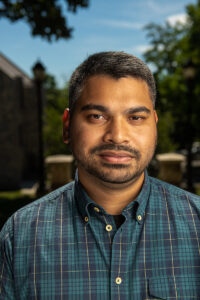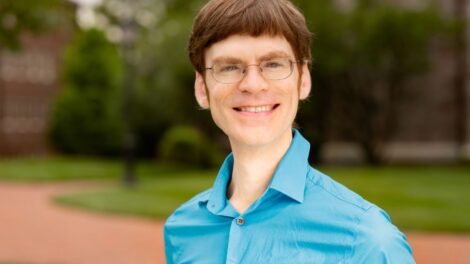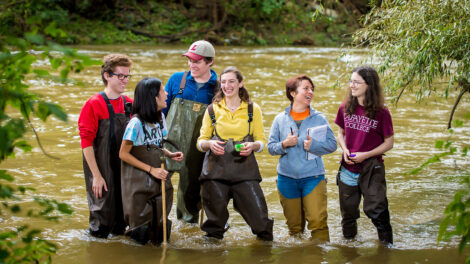Mathematics Prof. Farhan Abedin receives NSF grant
By Shannon Sigafoos
 Farhan Abedin ’11, assistant professor of mathematics, has received a National Science Foundation (NSF) award submitted in collaboration with Jun Kitagawa, associate professor of math at Michigan State University, who will serve as co-principal investigator on the grant and with whom Abedin has co-authored several research papers.
Farhan Abedin ’11, assistant professor of mathematics, has received a National Science Foundation (NSF) award submitted in collaboration with Jun Kitagawa, associate professor of math at Michigan State University, who will serve as co-principal investigator on the grant and with whom Abedin has co-authored several research papers.
Abedin and Kitagawa’s history of working together and mentoring undergraduates formed the basis of the collaborative research proposal they submitted to NSF last fall, for which Abedin was awarded $184,593. The award will support their work on the optimal transport problem, a mathematical model for finding the most efficient way of transporting a given amount of mass from one location to another.
“The optimal transport problem belongs to an area of math known as the ‘calculus of variations,’ and generally speaking, problems in the calculus of variations involve finding solutions of certain constrained optimization problems. In the case of the optimal transport problem, the corresponding variational problem is to find the cheapest–or the most optimal–mapping among all mappings that satisfy the physical principle of conservation of mass,” Abedin explains.
The mathematical framework of the optimal transport problem is flexible enough to be applied to a variety of scenarios in the physical and social sciences. One notable application is in the design of optical surfaces with prescribed reflective properties. While Abedin and Kitagawa have been interested in such applications, their research will not be constrained to this setting
“The goal is to develop theoretical tools that will lead to efficient numerical methods for solving the optimal transport problem in very general settings. This will require us to understand properties of a nonlinear partial differential equation known as the Monge-Ampère equation, which in most situations of interest, is impossible to solve explicitly,” Abedin says.
The grant also supplies the necessary funding to recruit interested and capable students who wish to work on the project, beginning in 2024. The student recruitment process will begin in the spring semester, with an overarching goal to select those who are interested in working on problems in applied partial differential equations. The exact manner in which the research will be carried out will depend on the research style that best suits the recruited students.
Abedin and Kitagawa plan to co-supervise teams of undergraduate researchers in 2024 through the Lafayette College Summer REU program and in 2025 through the Summer Undergraduate Research Institute in Experimental Mathematics program at Michigan State University. Both programs aim to recruit students from schools with limited opportunities for undergraduate research, with an eye toward recruitment of students from traditionally underrepresented groups in the mathematical sciences.

